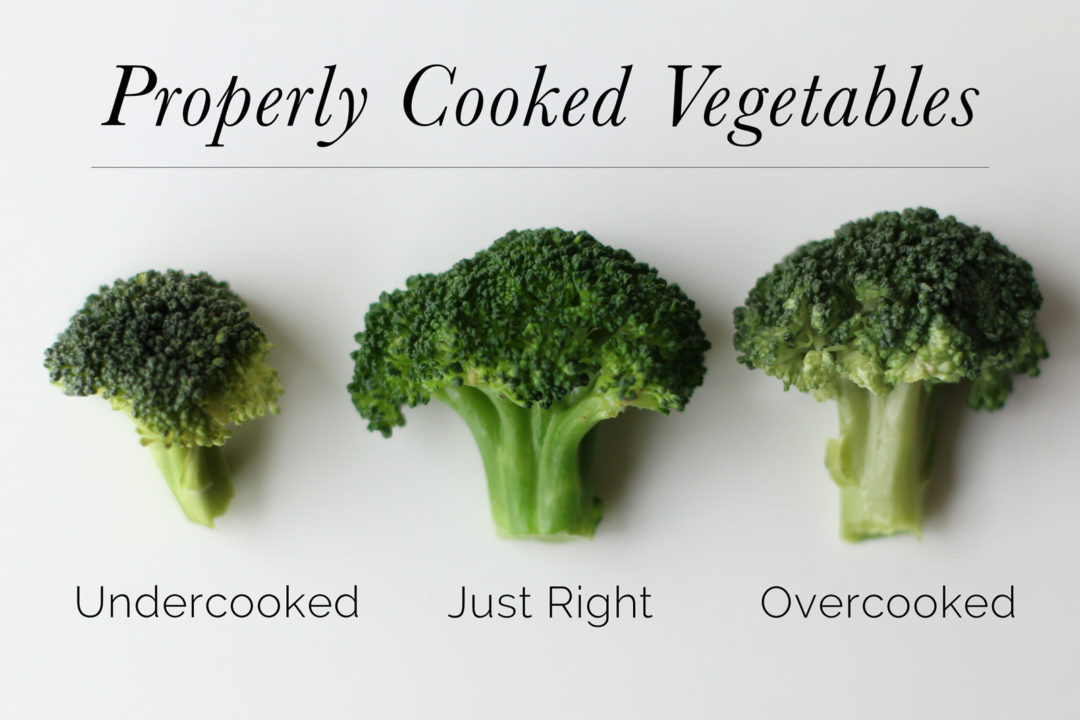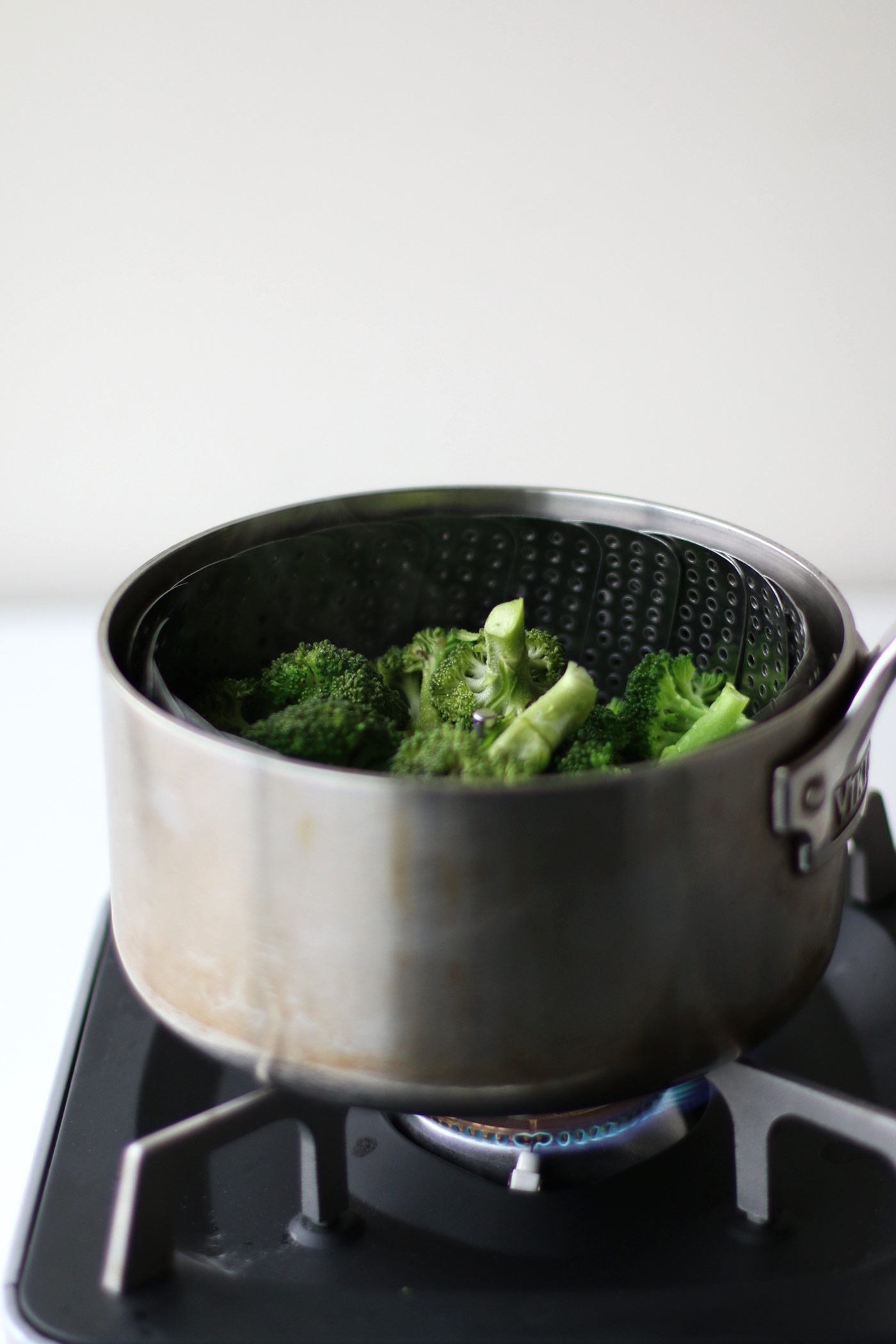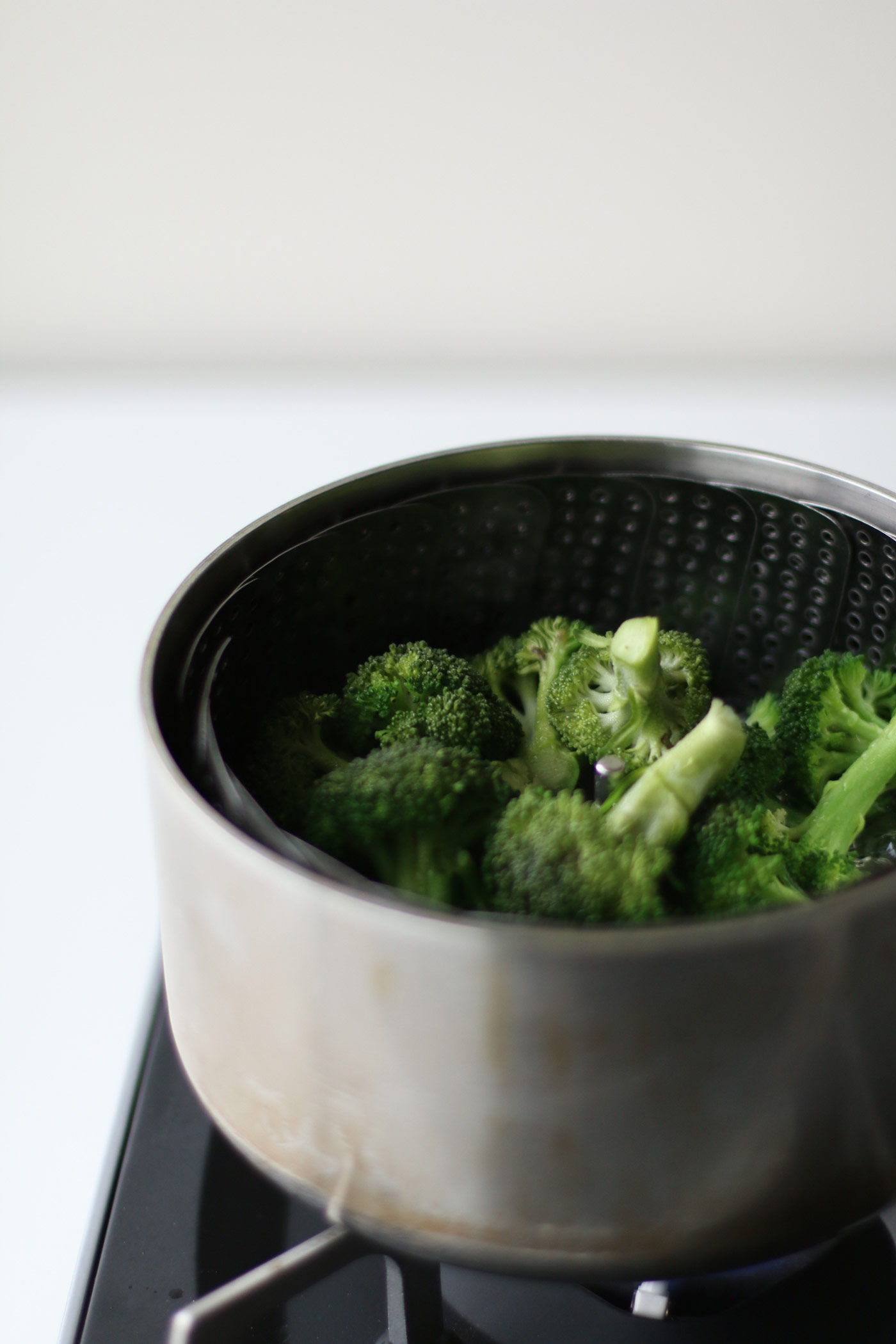Let’s talk vegetables, they might not be your favorite, but when cooked right can add tremendous flavor, color, and nutrition to a meal. One of the most common ways to cook vegetables is to steam them with a little hot water in the bottom of a saucepan and a steamer basket. It’s easy to tell if your vegetables are done by the color and tenderness of the vegetable.
Here is a quick guide to steaming vegetables.
When it comes to steaming, although it’s easy, there are certain vegetables that steam better than others.
Veggies, such as, asparagus, Brussels sprouts, broccoli, cauliflower, carrots, artichokes, green beans, corn, and zucchini are the ideal candidates for steaming. However, just because you have the ideal veggies for steaming, doesn’t mean you have to limit yourself. Feel free to experiment with others, such as, spinach and potatoes.
Timing
A good rule to remember when it comes to steaming vegetables is: the smaller the pieces are the quicker they cook. For example, if you were steaming broccoli stalks they would take about 7-8 minutes to steam, but, when steaming broccoli florets they will only take about 4-5 minutes.
Quick Timing Guide For Steaming
Asparagus: 6-8 minutes
Carrots (cut into rounds) 10-15 minutes
Cauliflower: stalks for 7-8 minutes, florets 4-5 minutes
Corn (on the cob): 8-10 minutes
Green Beans: 5-7 minutes
Potatoes (cut into 1 inch pieces): 10-15 minutes
Spinach: 2-3 minutes
How to Steam
Fill the bottom of a saucepan with water, until it reaches the bottom of your strainer basket. Put your vegetables in the pan over medium heat and ensure the lid is on tight! Set a timer and test your vegetable at the lower end of the time limit. Remove your vegetables from the pan when tender and season how you’d like.
How to tell when the veggies are finished
A vegetable is done being steamed when its color is bright and a fork is able to go through it with ease, yet still firm. Vegetables go from undercooked, when they are still too firm to eat, to just right, to overcooked, when they become too mushy and have lost their color, all in a matter of minutes.
Gygi Pro Tip: When the vegetable starts to loose its color it is also loosing nutrients. To maximize the nutrients in your vegetables follow the time guidelines and remove the veggie when the color is vibrant!





